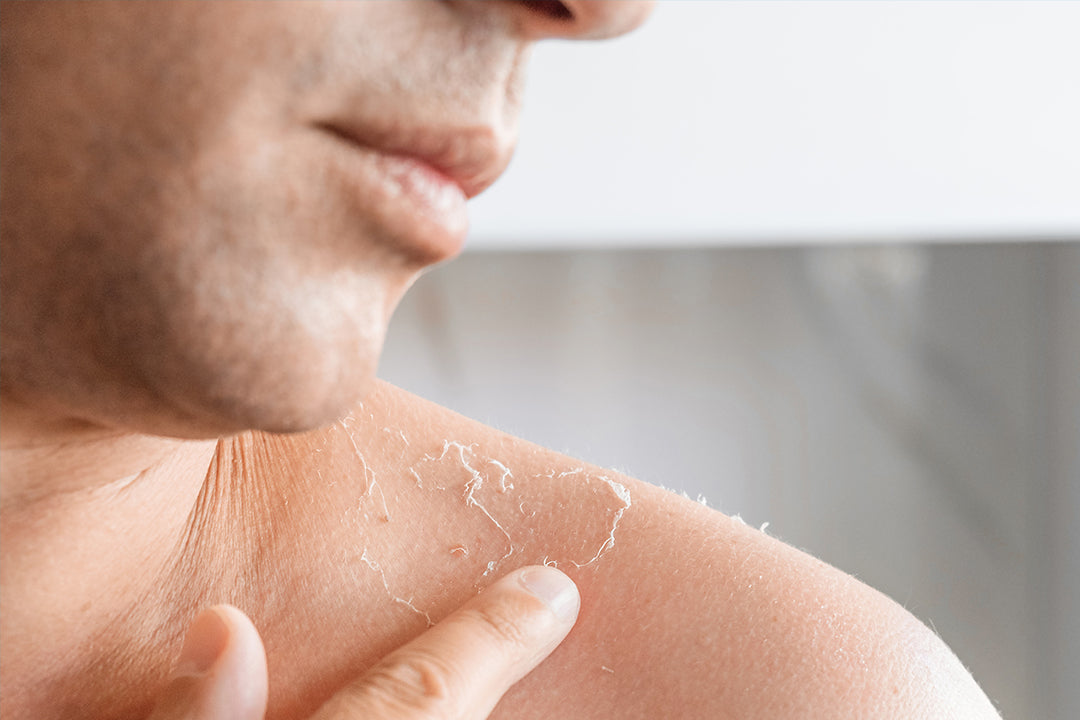Do you often find yourself dealing with skin problems that seem to worsen during times of stress? You're not alone. Stress can have a significant impact on your skin, leading to various issues that can be frustrating to deal with. In this blog post, we will explore the connection between stress and skin problems, understand how stress affects your skin, and provide effective solutions to help you achieve healthier, calmer skin.
Understanding the Link Between Stress and Skin
Stress is a natural response to the challenges and demands of life. However, when stress becomes chronic or overwhelming, it can manifest in different ways, including on your skin. The skin-brain connection plays a crucial role in how stress affects your skin. Stress triggers a release of stress hormones, such as cortisol, which can disrupt the balance of your skin and contribute to various skin problems.
Effects of Stress on Your Skin
Stress can have both immediate and long-term effects on your skin. Some common skin problems associated with stress include:
1. Acne: Stress can worsen existing acne or trigger breakouts due to increased oil production and inflammation.
2. Psoriasis: Stress can exacerbate psoriasis symptoms, leading to more frequent flare-ups and increased itching.
3. Eczema: Stress can cause eczema to flare up or intensify existing symptoms, resulting in redness, itching, and dryness.
4. Rosacea: Stress can trigger rosacea flare-ups, causing facial redness, flushing, and visible blood vessels.
Solutions for Skin Problems Due to Stress
While it's impossible to eliminate stress entirely from your life, there are effective strategies you can incorporate into your skincare routine to manage and minimize the impact of stress on your skin. Here are some practical solutions:
1. Practice Stress Management Techniques
Engaging in stress management techniques can help reduce the negative effects of stress on your skin. Consider incorporating activities such as meditation, deep breathing exercises, yoga, or mindfulness practices into your daily routine.
2. Establish a Consistent Skincare Routine
A consistent skincare routine is essential for maintaining healthy skin, especially during stressful periods. Cleanse your skin twice a day using a gentle cleanser to remove impurities and excess oil. Follow up with a nourishing moisturizer suitable for your skin type to keep your skin hydrated and protected.
3. Use Skincare Products with Calming Ingredients
Look for skincare products that contain calming ingredients known for their soothing properties. Ingredients like aloe vera, chamomile, green tea extract, and oatmeal can help alleviate redness, inflammation, and irritation associated with stress-related skin problems.
4. Prioritize Sleep and Rest
Adequate sleep and rest are crucial for maintaining healthy skin. During sleep, your body repairs and rejuvenates itself, including your skin. Make sure to establish a consistent sleep schedule and create a relaxing bedtime routine to promote quality sleep.
5. Adopt a Healthy Lifestyle
Support your skin's health by adopting a healthy lifestyle. Eat a balanced diet rich in fruits, vegetables, and whole grains. Stay hydrated by drinking plenty of water throughout the day. Regular exercise can also help reduce stress levels and improve your overall well-being.
FAQs - Frequently Asked Questions
1. Can stress cause skin problems?
Yes, stress can contribute to various skin problems, including acne, psoriasis, eczema, and rosacea. Stress disrupts the balance of your skin, leading to inflammation, increased oil production, and flare-ups of existing conditions.
2. How long does it take for stress to affect your skin?
Stress can manifest on your skin relatively quickly, sometimes within a few hours or days. However, chronic or prolonged stress can have long-term effects on your skin, leading to persistent skin problems.
3. Can skincare products alone solve stress-related skin problems?
While skincare products can help manage and alleviate stress-related skin problems, it's important to address the root cause of stress. Incorporating stress management techniques, healthy lifestyle choices, and self-care practices into your routine can significantly improve your skin's health.
Takeaways
Stress can take a toll on your skin, but it doesn't have to control your skin's destiny. By understanding the link between stress and skin problems and implementing effective solutions, you can achieve healthier, calmer skin. Remember to prioritize stress management, establish a consistent skincare routine, and make healthy lifestyle choices to support your skin's well-being. With the right approach, you can conquer stress-related skin problems and enjoy the skin you deserve.









